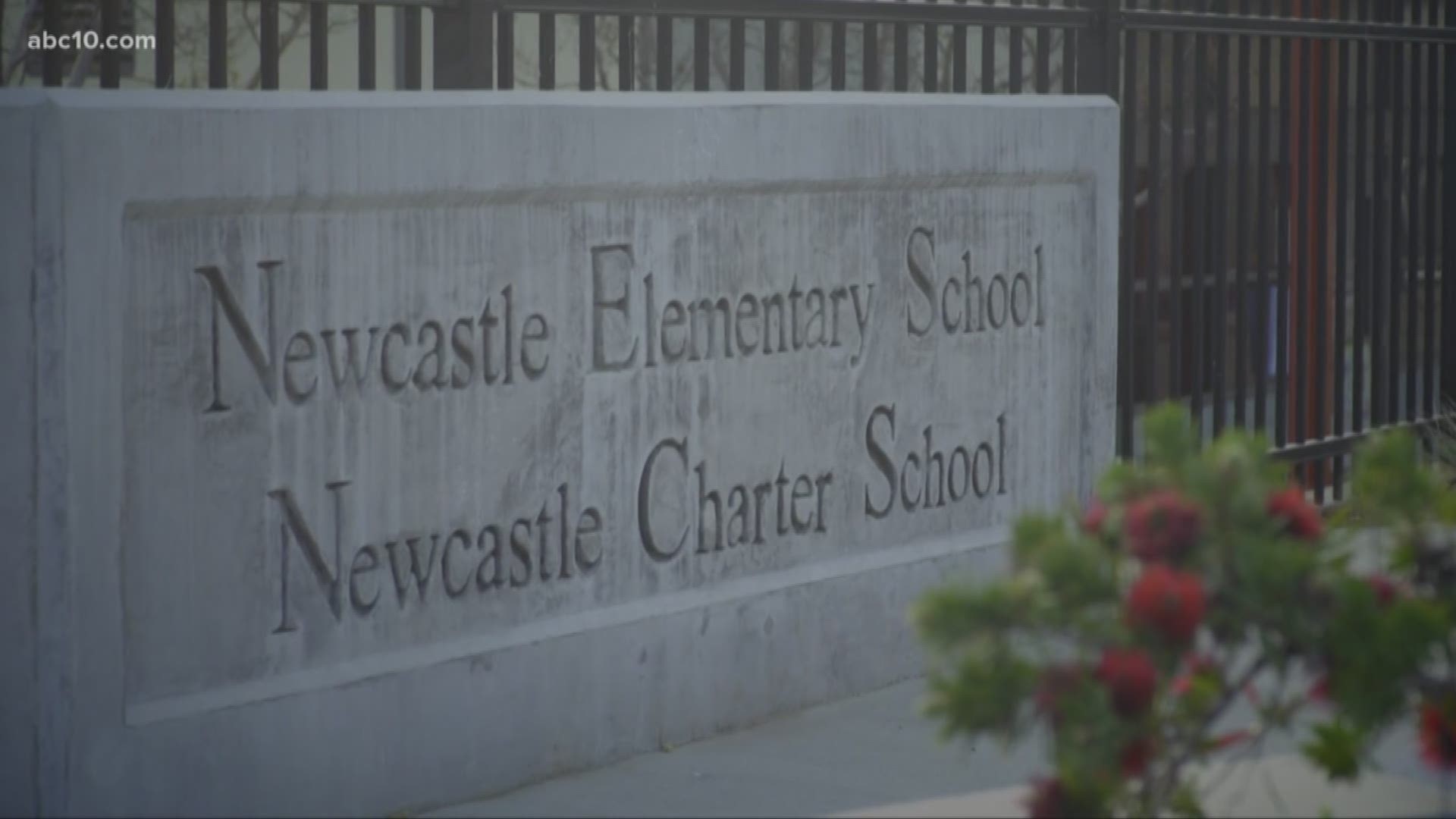AUBURN, Calif — With three children still in school, Megan Campos said it was impossible for her and her husband to find last minute daycare after many in their area are closed due to coronavirus concerns.
The Auburn mother's three children all attend Placer County schools, which were all shut down for the next three weeks as school and health officials work to mitigate any potential spread of the COVID-19.
To top it off, Campos' regular full-time nanny called to say she won't be able to work because she was exposed to coronavirus.
"We are shuffling kids around with family to try to make sure we have day care with two working parents," Campos told ABC10 in Facetime interview Friday.
Campos said she plans on keeping her children on a schedule with activities and setting boundaries with her kids while she works from home.
"Leaving kids to be around the house can be a really big panic for them and they’ll start to be stir crazy for quite a bit," she said.
The closures impact at least 74,900 students and 4,370 staff, according to data from the California Department of Education. The announcement comes the same day that Sacramento, San Joaquin and Solano counties shut their schools for at least the next three weeks.
In total, more than 500,000 students in Northern California's greater Sacramento area out of school for at least the next two weeks.
High school students like Lilian Moreland says teachers at Placer High School will be working out details Monday on how to conduct online courses with chromebooks the school provided.
Still, she's worried most about her extracurricular classes, like band.
"I'm worried that it's just not going to work out and that a lot of us are going to fall behind," Moreland says.
For Lori Hawkins, the closures mean more than kids being home, it also means tightening her family's financial belt. Hawkins, whose husband travels to schools as a speaker, canceled bookings for the next three weeks.
They plan on going through reserves in their pantry.
"[We'll] actually eat some of the food we would normally run to the grocery store and get more stuff just to be on the safe side," Hawkins said. "Because we don’t know how long this will go.”
Hawkins said, she doesn't want to panic, but she wants to be smart.
Hayden Davis says he wishes there was a balance to slow the virus and lessen the strain on working families with small children, like his.
Of the district's nearly 75,000 students, about 28% of them qualify for free or reduced meals, according to state education data.
"I could see closing up high schools, but I think a lot of the elementary schools, there's no need to close unless maybe a kid does get sick," Davis explained.
But for now, these parents say they just have to make it work.
CORONAVIRUS BACKGROUND:
According to the CDC, coronavirus (COVID-19) is a family of viruses that is spreadable from person to person. Coronavirus is believed to have been first detected in a seafood market in Wuhan, China in December 2019. If someone is sick with coronavirus, the symptoms they may show include mild to severe respiratory illness, cough, and difficulty breathing.
Currently, there is no vaccine, however, the CDC suggests the following precautions, along with any other respiratory illness:
- Avoid close contact with people who are sick.
- Avoid touching your eyes, nose, and mouth.
- Stay home when you are sick.
- Cover your cough or sneeze with a tissue, then throw the tissue in the trash.
- Clean and disinfect frequently touched objects and surfaces using a regular household cleaning spray or wipe.
- Wash your hands with soap and water for a minimum of 20 seconds.
The CDC also says facemasks should only be used by people who show symptoms of the virus. If you’re not sick, you do not have to wear a facemask. The CDC says the immediate risk to the U.S. public is low.
Follow the conversation on Facebook with Van Tieu.
FOR NEWS IN YOUR COMMUNITY, DOWNLOAD THE ABC10 APP:
►Stay In the Know! Sign up now for ABC10's Daily Blend Newsletter



